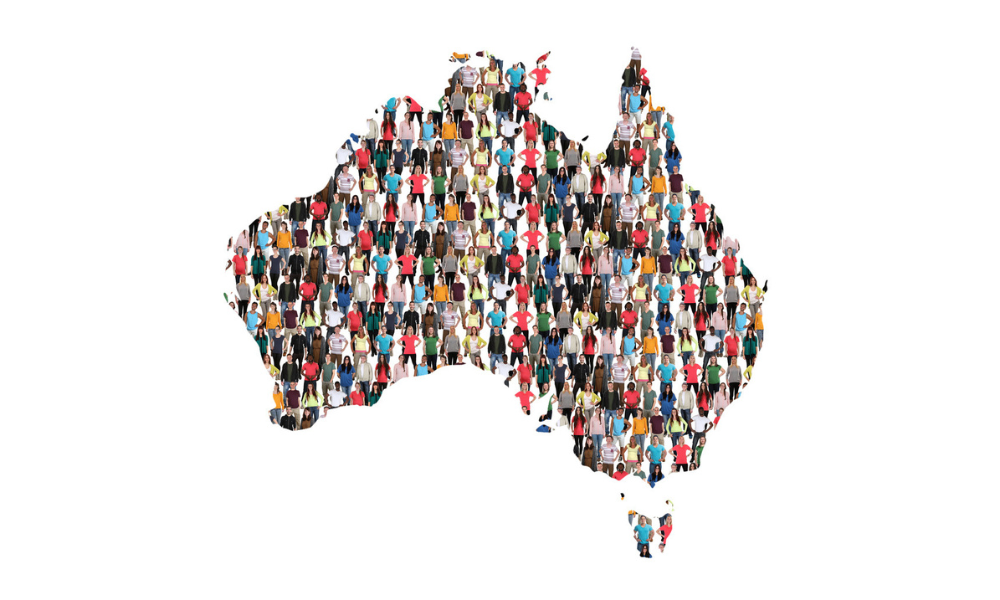
HR departments find system 'impossible to navigate,' says minister

"Our migration system is suffering from a decade of genuinely breathtaking neglect."
These were the remarks of Home Affairs Minister Clare O'Neil as she unveiled a landmark report that exposed the weaknesses of Australia's migration system.
"It is broken. It is failing our businesses, it is failing migrants themselves. And most importantly, it is failing Australians," the minister said in a speech at the National Press Club.
The landmark report was carried out by former Secretary of the Department of Prime Minister and Cabinet, Dr Martin Parkinson, as well as migration experts Professor Joanna Howe and John Azarias. It found that the current system is not well designed and is dominated by a large, temporary migration programme.
"To determine skills needs, we use outdated occupation lists that don't reflect the needs of the economy, and labour market testing that both unions and business agree isn't working," O'Neil said. "The effect of many of these rules is that we often miss out on the highly skilled workers we need."
The report also pointed out that the income threshold remained frozen at $53,900, below the earnings of 90% of Australia's full-time workers.
According to O'Neil, former Immigration Minister Peter Dutton's reign shifted the country's skilled worker programme into a guest worker programme.
"What he created was an immigration system which favoured temporary migration, in increasingly lower paid jobs. These are the two essential ingredients to the worker exploitation that we know is occurring in Australia's workplaces," O'Neil said.
The report also called out the "bureaucratic nightmare" the current system has shifted into, calling out the hundreds of visa categories and subcategories.
The minister likened the system to a "tangled bowl of spaghetti" if drawn as a diagram.
"Large businesses with massive HR departments find this system impossible to navigate. And small businesses have got Buckley's Chance of being able to use it to fill a skills gap," O'Neil said. "For migrants, it means paying exorbitant fees to migration agents just to navigate the system."
Arriving migrants are also exposed to hardships, particularly on housing and exploitation, according to the minister.
"Our country faces very genuine and significant challenges providing safe, affordable housing for Australians," said O'Neil. "These problems are not caused by migrants. There are hundreds of thousands fewer migrants in the country now than we thought would be here before the pandemic. And we still face very substantial difficulties with housing."
Migrant workers are also "stuck in permanently temporary limbo" when they arrive, according to O'Neil, as abuses on the country's visa system have gone unchecked.
"What has emerged is a system where it is increasingly easy for migrants to come to Australia in search of a low-paid job, but increasingly harder for migrants to come here with the skills we desperately need," the minister said.
O'Claire, in a joint media release with Immigration Minister Andrew Giles, announced that the government will increase Temporary Skilled Migration Income Threshold (TSMIT) to $70,000 starting July.
The increase comes after the country's migration income threshold remained stuck at $53,900 for a decade, according to the ministers. This is also regarded as the first step of the government in addressing the problems raised by Parkinson's report.
"It is a down payment on the type of migration system the Albanese Government wants to build," O'Neil said.
The home affairs minister also pledged that by 2023, all temporary skilled workers will have pathway to permanent residency without expanding the country's capped permanent programme.
"We want to increase competition for permanent resident places and ensure we don't leave more workers in limbo, bouncing from visa to visa," O'Neil said.
The government has released for consultation a draft outline of its migration strategy for Australia, outlining its directions for "significant reform" on the system, according to O'Neil.
National employer association Ai Group welcomed the draft outline in a statement.
"The directions raised by the minister: improving how we prioritise in our approach to temporary and permanent migration; reducing the cost and administrative barriers facing potential immigrants and employers; and elevating the emphasis on the post-arrival experience of migrants, including in relation to housing, have the potential to deliver substantial improvements to Australia's migration program and to deliver greater benefits for the economy and the broader community," Ai Group chief executive Innes Willox said.
Acknowledging the TSMIT increase, Willox also pointed out that the hike may "create some difficulties."
"We support this increase which restores the real value of the TSMIT to its previous level in real terms," he said.
The Business Council of Australia also pointed out that the increase to $70,000 is a "significant increase" but it was "workable."
"This change will need to be delivered alongside action to remove onerous and ineffective red tape while still ensuring Australian workers don’t miss out by targeting migrants with the scarce skills in short supply around the world," said BCA chief executive Jennifer Westacott in a statement.
"TSMIT changes will need to be delivered with a process for essential workers to avoid unintended consequences in areas of real shortage but with incomes below the threshold."